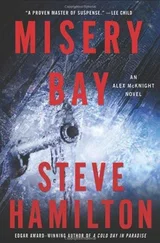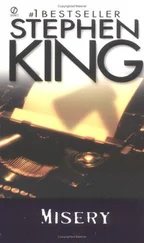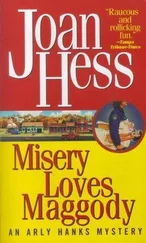Сэмуэль Шэм - Mount Misery
Здесь есть возможность читать онлайн «Сэмуэль Шэм - Mount Misery» весь текст электронной книги совершенно бесплатно (целиком полную версию без сокращений). В некоторых случаях можно слушать аудио, скачать через торрент в формате fb2 и присутствует краткое содержание. Жанр: Проза, на английском языке. Описание произведения, (предисловие) а так же отзывы посетителей доступны на портале библиотеки ЛибКат.
- Название:Mount Misery
- Автор:
- Жанр:
- Год:неизвестен
- ISBN:нет данных
- Рейтинг книги:4 / 5. Голосов: 1
-
Избранное:Добавить в избранное
- Отзывы:
-
Ваша оценка:
- 80
- 1
- 2
- 3
- 4
- 5
Mount Misery: краткое содержание, описание и аннотация
Предлагаем к чтению аннотацию, описание, краткое содержание или предисловие (зависит от того, что написал сам автор книги «Mount Misery»). Если вы не нашли необходимую информацию о книге — напишите в комментариях, мы постараемся отыскать её.
Mount Misery — читать онлайн бесплатно полную книгу (весь текст) целиком
Ниже представлен текст книги, разбитый по страницам. Система сохранения места последней прочитанной страницы, позволяет с удобством читать онлайн бесплатно книгу «Mount Misery», без необходимости каждый раз заново искать на чём Вы остановились. Поставьте закладку, и сможете в любой момент перейти на страницу, на которой закончили чтение.
Интервал:
Закладка:
A series of well-heeled patients marched in, one after the
other. Errol spent at most ten minutes with each and treated each exactly die same way: asking about their drugs-usually they were on three to six drugs-side effects, improvements, and then adding or subtracting drugs before saying good-bye. He asked a question or two about their symptoms. He asked nothing about their psychological state. The patients were treated with a courteous benevolence, like, say, good dogs.
It was astonishing to see how, being treated with total, authoritarian objectivity, they responded with total, submissive gratitude. Errol gave the impression of being absolutely sure. While he was sure about everything, he addressed but one thing: drugs. If his patients wanted to talk diagnosis, he talked drugs. If they wanted to talk symptoms, he talked drugs. Stress? Drugs. Suffering? Drugs. Family problems? Drugs. Job? Drugs. The love, yes, the adulation his patients felt for Errol was palpable. How could they love him? They could love him because not only did he convey to them that he was sure about their drugs, and, by implication, about all the other things they mentioned-diagnosis, symptoms, stress, suffering, family, job-but in addition he always said to each patient at the end of the ten-minute interview:
"This will make you feel wonderful and make you better"
Most patients loved hearing this and thanked him.
A rare patient might ask, "Are you sure?"
"Absolutely. This will make you feel wonderful and make you better."
Virtually everyone got an antidepressant, often Prozac, and a pseudo-amphetamine, often Ritalin. Errol regarded these drugs with contempt. "Placedon makes Prozac look like popcorn, Zephyrill makes Ritalin look like Rice Krispies. Family doctors prescribe Prozac-a 'mood brightener,' Clairol for your brain. Cosmetic psychopharm, like nose jobs. Prozac's like pissin' in the wind, and Ritalin's like vending machine coffee." Most patients also walked out on Placedon and/or Zephyrill, giving a baseline total of four drugs. Not that Errol was dogmatic. As long as a patient wanted a drug, he didn't much care which drug it was. Many patients, having heard of drugs other patients were on-family or friends, or patients they met in Errol's waiting room-would come in and ask Errol for a prescription for the same drug they'd heard of. Errol congratulated them on the wisdom of their choice and
wrote them a "scrip." As a fiercely cheery Lilly saleswoman had once told me, "Prozac sales topped two billion last year!"
The most heart-wrenching were the children.
Parents would bring their children in.
The children would always go out on Ritalin, and sometimes on Prozac.
Errol was doing his best to add to the 1.5 million American schoolchildren who were now on Ritalin, in a way a kind of speed, to treat something, some "disease," that hadn't even much existed five years before.
Over the course of the year, especially by working with Malik, for most people I'd come to see many of the lesser psychiatric drugs-especially Ritalin and Prozac and Zoloft and the other serotonin-uptake inhibitors-as symptoms. They were symptoms of the disconnections in the society, symptoms that in fact increased the disconnections, which led to more Ritalin and Prozac and newer versions of the same. Especially with kids, it was obvious that the cure was in creating the connections, not in giving them drugs that disconnected them further, and destroyed them. But that was more difficult, and hey-Errol was considerate: for the really young ones, he gave them their Ritalin in an elixir.
Finished with his private practice, Errol shot to his feet and bolted for the parking lot. Trying to keep up with him, I screamed out, "But a lot of them come back from their last visit with you not better."
"And then I give 'em a new drug and it makes 'em feel wonderful and better."
"But what if it doesn't make them better?"
"I try a newer drug. Let's go!"
"Don't you ever run out of drugs?"
"You never run out of mixtures. Principle of 'the Drug Cocktail'-c'monl"
The gull wings of his red Ferrari spread up and out as if just dying to catch the alluring spring breeze. A bumper sticker read:
RESEARCH TAKES BRAINS,
DONATE YOURS. CALL
1-900-BRAIN BANK.
"Nice car," I said. The seat welcomed my body like a perfect orthotic a foot.
"Ferrari Mondial. Sterling/Italia cut me a deal. Only 197 K."
"Still a lot."
"Not if you maximize your billability. Everything you saw, I bill for. Ten minutes, a hundred bucks. Ten bucks a billable minute."
"It's mind-boggling."
"No, it's modern psychiatry. Your little 'talk therapy' is now a minor subspecialty. A hundred twenty an hour, tops. Chump change. No cars bice this. Managed care and insurance won't pay for talk. They pay for drugs. Pretty soon they won't even bother to teach you residents how to talk anymore. I sit on the President's National Health Care Task Force. The government doesn't believe in talk. It believes in drugs. If my patients want to talk, I send 'em to a social worker. Cheaper, and better. Placebo effect. No cars like this. Drugs aren't just a career, they're a lifestyle."
He slipped us into gear. The Ferrari growled along at the Misery 15 mph limit angrily, as if there were a hundred hungry Italians under the hood, late for their primo piano.
"You bill for everything?" I asked.
"Everything," he said, dialing his car phone.
"Even the patients on the wards?" He nodded. "But you didn't see them."
"I saw them. You saw them too." He was talking into a patient's machine.
"You saw them, but you didn't meet with them, or talk with them."
"Saw enough to bill 'em. Saw their charts. You want to see something? See my alimony. I'm working on the wife from hell number three."
"But it's illegal," I said as we crept growling up to the wrought-iron gate out of Misery, "to bill insurance without actually seeing the pa-yeow!"
He'd hit the accelerator and suddenly the occipital lobes of my brain seemed to have flattened against the back side of my skull. My eyeballs flattened back against their sockets. The road blurred. I caught a whiff of swamp gas. Suddenly he downshifted and I was thrown forward. My frontal lobe
crashed against my maxillary sinus, my eyeballs against my lids. Nausea.
We were passing under a falling-down arch and growling along again through the neglected mud and debris of the grounds of what looked like a medieval fortress: all turrets, walls, and pointed spires in stark relief against the suddenly lowering sky-we were in Candlewood State Hospital. Errol also owned the drug and shock concession at this state facility and was in charge of our first-year resident Misery rotation there-one morning a week for a month-which Schlomo Dove had demanded, as a token gesture to the Great Unwashed.
The contrast with Misery couldn't have been more stark. In place of manicured grounds and pointed fresh brick, here were crumbling walls and dumping grounds. I raced Errol into his office, the desk and furniture classic public sector, cheap alloy and imitation wood, the air thick with the stench of stale overtime, which brought back the memories of my long nights on the graveyard shift as a toll collector on the Rip van Winkle Bridge over the Hudson, back in Columbia. Errol was furiously signing a pile of state documents, in triplicate. I asked what he was doing.
"Signing discharges. The governor is cleaning this shitbox out."
"Discharges to where?"
'To wherever. Nobody cares about these people anymore."
"But you haven't even seen them."
"What the fuck's with you with this seeing1? Take these keys to the wards. Get an education in the public sector. I leave in one hour."
I wandered long corridors, peering into empty wards. At first the doors were labeled ACUTE MEN'S 1, or ACUTE WOMEN'S 3. As I walked farther into the fortress, suddenly I was in CHRONIC. I peered into a ward that seemed full, CHRONIC WOMEN'S 9.1 unlocked the huge door and went in.
Читать дальшеИнтервал:
Закладка:
Похожие книги на «Mount Misery»
Представляем Вашему вниманию похожие книги на «Mount Misery» списком для выбора. Мы отобрали схожую по названию и смыслу литературу в надежде предоставить читателям больше вариантов отыскать новые, интересные, ещё непрочитанные произведения.
Обсуждение, отзывы о книге «Mount Misery» и просто собственные мнения читателей. Оставьте ваши комментарии, напишите, что Вы думаете о произведении, его смысле или главных героях. Укажите что конкретно понравилось, а что нет, и почему Вы так считаете.










